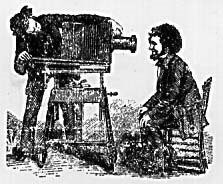Because this section is entitled "media studies" I thought I'd start with a definition of "MEDIA" from new keywords
1."The contemporary idea of a medium "or, in the plural, of media) is closely linked to that of the process of dissemination, or circulation, of information by means of some particular channel of communication. Central here is the process of sending signals or signs of some kind... Nowadays the term 'media' is most commonly used to refer to the institutions of electronic broadcasting, printed magazines, and newspapers which address mass audiences"(Bennet, 214).
2.I thought an interesting part of the essay was about how semiotics has entered media studies, and the essay breifly mentioned Roland Barthe, as an author/thinker on this subject(page 299), so I thought I'd look him up...(LONG ONE,sorry)
"Roland Barthes (November 12, 1915 – March 25, 1980) (pronounced [ʀɔlɑ̃ baʀt]) was a French literary critic, literary and social theorist, philosopher, and semiotician. Barthes' work extended over many fields and he influenced the development of schools of theory including structuralism, semiotics, existentialism, Marxism and post-structuralism... He would often interrogate pieces of cultural material to expose how bourgeois society used them to assert its values upon others. For instance, portrayal of wine in French society as a robust and healthy habit would be a bourgeois ideal perception contradicted by certain realities (i.e. that wine can be unhealthy and inebriating). He found semiotics, the study of signs, useful in these interrogations. Barthes explained that these bourgeois cultural myths were second-order signs, or significations. A picture of a full, dark bottle is a signifier relating to a signified: a fermented, alcoholic beverage - wine. However, the bourgeois take this signified and apply their own emphasis to it, making ‘wine’ a new signifier, this time relating to a new signified: the idea of healthy, robust, relaxing wine. Motivations for such manipulations vary from a desire to sell products to a simple desire to maintain the status quo." http://en.wikipedia.org/wiki/Roland_Barthes#Semiotics_and_myth
I didn't know what "lacanian theories" was (on page 300) so this last one is a definition
lancanian is from...
"Jacques-Marie-Émile Lacan (French ) (April 13, 1901 – September 9, 1981) was a French psychoanalyst, psychiatrist, and doctor, who made prominent contributions to the psychoanalytic movement. His yearly seminars, conducted in Paris from 1953 until his death in 1981, were a major influence in the French intellectual milieu of the 1960s and '70s, particularly among post-structuralist thinkers.
Lacan's ideas centered on Freudian concepts such as the unconscious, the castration complex, the ego, focusing on identifications, and the centrality of language to subjectivity. His work was interdisciplinary, drawing on linguistics, philosophy, mathematics, amongst others. Although a controversial and divisive figure, Lacan is widely read in critical theory, literary studies, and Twentieth-Century French Philosophy, as well as in the living practice of clinical psychoanalysis."http://www.reference.com/search?r=13&q=Lacanian
announcements
This blog was created by and for students in an Introduction to Cultural Studies class at the University of Washington. Through an investigation of urban experience and representation--in theory, in graphic novels and in our own "readings" of Seattle's University District--we considered the formation and history of cultural studies as an (anti)discipline, with a special emphasis on the questions, "What does cultural studies do, and how do you do cultural studies?"
If you'd like to know more about the class, the blog or our U-District artifact project, please contact Gabrielle Dean: gnodean@u.washington.edu.
If you'd like to know more about the class, the blog or our U-District artifact project, please contact Gabrielle Dean: gnodean@u.washington.edu.
Wednesday, April 16, 2008
Subscribe to:
Post Comments (Atom)
blog archive
-
▼
2008
(92)
-
▼
April
(35)
- Identity in City of Glass
- History of Origins: Race Studies
- History of Origins: Gender Studies
- History of Origins: Gender Studies
- History of Origins: America
- History of Origins: Race Studies
- History of Origins: Gender Studies
- History of Origins: Race Studies
- History of Origins: Race Studies
- History of Origins: Media and Science
- History of Origins: Media and Science
- History of Origins: Gender Studies
- History of Origins: Media and Science
- History of Origins: European Theory
- History of Origins: European Theory
- History of Origins: European Theory
- History of Origins: European Theory
- History of Origins: European Theory
- History of Origins: America
- History of Origins: European Theory
- History of Origins: America
- History of Orgins: European Theory
- History of Origins: European Theory
- History of Origins: Great Britain
- History of Origins: Great Britain
- Cultural Studies in Britain
- Cultural Studies in Britain
- History of Origins: General
- History of Origins: General
- History of Origins: General
- History of Origins: General
- "Orientalism"
- Are You an Author?
- "Paris, Capital of the 19th Century"
- READING: A WEB MODEL
-
▼
April
(35)

No comments:
Post a Comment